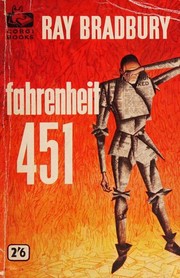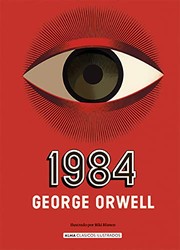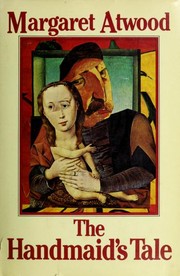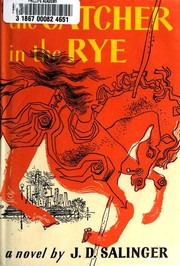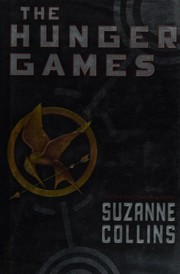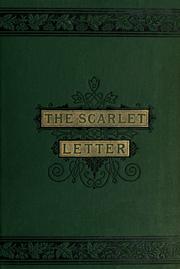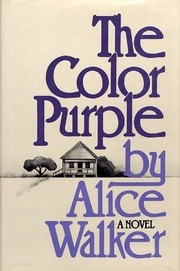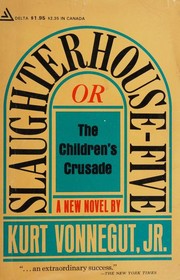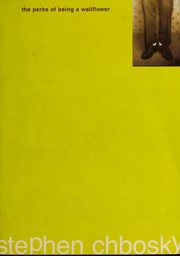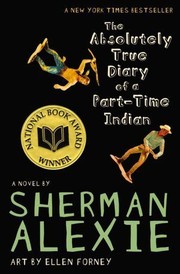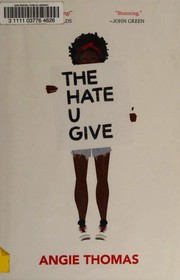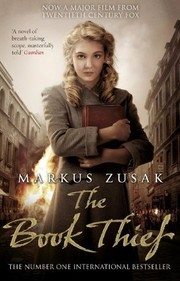Are you interested in exploring the complex and controversial topic of censorship through literature? Look no further! We’ve curated a list of the 20 best books about censorship that will challenge your perspective and spark important conversations. From historical accounts to thought-provoking fiction, each book on censorship offers a unique insight into the impact of controlling information and suppressing freedom of expression. Whether you’re a student, a researcher, or simply curious about the subject, these censorship books are essential reads for understanding this pervasive issue.
Contents
- 1 20 Best Books About Censorship
- 2 Fahrenheit 451
- 3 1984
- 4 Brave New World
- 5 The Handmaid’s Tale
- 6 Animal Farm
- 7 The Giver
- 8 The Catcher in the Rye
- 9 The Diary of a Young Girl
- 10 The Hunger Games
- 11 The Scarlet Letter
- 12 A Clockwork Orange
- 13 The Color Purple
- 14 Slaughterhouse-Five
- 15 The Grapes of Wrath
- 16 The Kite Runner
- 17 The Perks of Being a Wallflower
- 18 The Satanic Verses
- 19 The Absolutely True Diary of a Part-Time Indian
- 20 The Hate U Give
- 21 The Book Thief
- 22 Conclusion
- 23
- 24 Books about Putin'S Russia: 2024 Updated Guide to Essential Reading
- 25 Marriage Books: A Curated 2024 Updated List
- 26 Reading List of Old People Books – 2024 Update
20 Best Books About Censorship
Fahrenheit 451
by Ray Bradbury
Fahrenheit 451, a dystopian novel by Ray Bradbury, is a thought-provoking book on censorship. Set in a future society where books are banned and ‘firemen’ burn any that are found, the story follows Guy Montag, a fireman who begins to question the suppression of knowledge and the control of information. As he rebels against the oppressive regime, he meets rebels who are committed to preserving literature and resisting the government’s censorship. Through vivid imagery and powerful storytelling, Bradbury explores the dangers of intellectual suppression and the impact of censorship on society. This censorship book is a compelling and cautionary tale that challenges readers to consider the value of free thought and the consequences of a world without access to knowledge.
1984
by George Orwell
1984 by George Orwell is a dystopian novel that delves into the dangers of totalitarianism and the manipulation of truth. Set in a world where the government, led by the omnipresent figure Big Brother, monitors every aspect of its citizens’ lives, the book explores themes of surveillance, propaganda, and the suppression of free thought. The protagonist, Winston Smith, works for the Ministry of Truth, where he alters historical records to fit the party’s narrative. As he begins to question the reality he’s been presented, he embarks on a dangerous journey of rebellion against the oppressive regime. 1984 is a thought-provoking and chilling book about censorship, control, and the consequences of a society devoid of freedom and individuality.
Brave New World
by Aldous Huxley
Brave New World by Aldous Huxley is a thought-provoking dystopian novel that explores a futuristic society where technology, conditioning, and a rigid caste system have eliminated individuality and freedom. In this book about censorship and control, Huxley paints a chilling picture of a world where citizens are kept in check through the use of drugs, mind control, and the suppression of emotions. The novel follows the story of Bernard Marx, an Alpha Plus who doesn’t quite fit into the society, and his journey of self-discovery in a world where conformity is the norm. Huxley’s exploration of the dangers of a totalitarian regime and the loss of personal liberties makes Brave New World a timeless and relevant read for anyone interested in the implications of censorship and societal control.
The Handmaid’s Tale
by Margaret Atwood
The Handmaid’s Tale by Margaret Atwood is a dystopian novel set in the oppressive Republic of Gilead, where women are stripped of their rights and forced into servitude. The story follows Offred, a handmaid whose sole purpose is to bear children for the ruling class. Atwood’s chilling portrayal of a society built on control, fear, and manipulation offers a powerful commentary on the dangers of authoritarianism and the suppression of individual freedom. This thought-provoking book on censorship challenges readers to examine the consequences of a world where information, expression, and autonomy are tightly controlled. With its haunting narrative and vivid depiction of a world ruled by fear, The Handmaid’s Tale is a must-read for anyone interested in exploring the perils of censorship and the resilience of the human spirit.
Animal Farm
by George Orwell
Animal Farm by George Orwell is a classic allegorical novella that takes a satirical look at the rise of totalitarianism and the abuse of power. Set on a farm, the story follows a group of animals who overthrow their human owner and establish their own self-governing society. However, as the pigs take control, they become corrupted by power, leading to oppression and inequality among the other animals. The novel explores themes of political corruption, manipulation, and the dangers of censorship, as the pigs rewrite history and control the flow of information to maintain their authority. With its thought-provoking commentary on censorship and propaganda, Animal Farm remains a timeless and relevant read for anyone interested in understanding the impact of censorship on society.
The Giver
by Lois Lowry
The Giver by Lois Lowry is a thought-provoking dystopian novel that explores a world without memories, emotions, or choices. In a society where everything is controlled, the protagonist, Jonas, is chosen to be the Receiver of Memories and learns about the true depth of human experience. As he uncovers the dark secrets of his community, Jonas is faced with the dilemma of conformity versus individuality. This compelling book delves into themes of control, repression, and the consequences of a society devoid of freedom and emotion. The Giver is a powerful and poignant story that challenges readers to question the impact of a world built on censorship and the suppression of individuality.
The Catcher in the Rye
by J.D. Salinger
The Catcher in the Rye, written by J.D. Salinger, is a classic coming-of-age novel that follows the story of Holden Caulfield, a rebellious and disillusioned teenager. The book delves into themes of alienation, identity, and the struggle to find meaning in a world that seems phony and superficial. The novel has sparked controversy and has been the subject of debate due to its frank portrayal of teenage rebellion and its exploration of sensitive topics, making it a popular choice for those interested in books about censorship, and the impact of censorship. This timeless novel continues to resonate with readers of all ages, making it a thought-provoking and enduring work of literature.
The Diary of a Young Girl
by Anne Frank
The Diary of a Young Girl by Anne Frank is a powerful and poignant account of a young Jewish girl’s experiences during World War II. Anne Frank’s diary serves as a testament to the human spirit and resilience in the face of adversity. The book provides an intimate and personal glimpse into the life of a teenager hiding from the horrors of the Holocaust. Despite the challenges and fears she faced, Anne Frank’s diary is a testament to the power of hope and the enduring strength of the human spirit. This timeless classic is a must-read for anyone interested in the human experience, the impact of war, and the importance of bearing witness to history. It is also a significant book about censorship as it has faced attempts at suppression and restriction throughout history.
The Hunger Games
by Suzanne Collins
The Hunger Games by Suzanne Collins is a dystopian novel set in the nation of Panem, where the Capitol holds absolute power over the twelve districts. The story follows Katniss Everdeen, a resourceful and strong-willed young woman who volunteers to take her sister’s place in the annual Hunger Games, a televised fight to the death between children from each district. As Katniss navigates the deadly challenges of the games, she becomes a symbol of rebellion against the oppressive Capitol. The book explores themes of control, oppression, and resistance, making it a thought-provoking read for those interested in a book about censorship. With its gripping plot and complex characters, The Hunger Games is a powerful commentary on the dangers of unchecked power and the resilience of the human spirit.
The Scarlet Letter
by Nathaniel Hawthorne
The Scarlet Letter, written by Nathaniel Hawthorne, is a classic novel that delves into the consequences of sin, guilt, and societal censorship in 17th century Puritan New England. The story follows Hester Prynne, a woman who is publicly shamed and forced to wear a scarlet letter “A” as a symbol of her adultery. As she struggles to rebuild her life, she faces the harsh judgment and censorship of the puritanical community. The novel explores the themes of redemption, forgiveness, and the impact of censorship on individual freedom. It is a thought-provoking and poignant portrayal of the harsh realities of living under a system of strict societal censorship and the human spirit’s resilience in the face of judgment and condemnation.
A Clockwork Orange
by Anthony Burgess
A Clockwork Orange is a novel by Anthony Burgess that delves into the dark and dystopian world of a teenage delinquent named Alex. Set in a future society, the book explores themes of violence, free will, and the moral implications of censorship. The story follows Alex and his gang of “droogs” as they commit heinous acts of violence, eventually leading to Alex’s capture and rehabilitation through a controversial form of conditioning. The novel raises thought-provoking questions about the nature of good and evil, the consequences of unchecked power, and the ethics of censorship. A Clockwork Orange is a compelling and provocative read that continues to spark discussions about the boundaries of societal control and individual freedom.
The Color Purple
by Alice Walker
The Color Purple by Alice Walker is a powerful and heart-wrenching novel that delves into the lives of African American women in the early 20th century. The story follows the life of Celie, a young girl who faces abuse and oppression from the men in her life. Through a series of letters, Celie finds solace and strength in the relationships she forms with other women, particularly with her sister Nettie and the bold and independent Shug Avery. The novel tackles themes of racism, sexism, and the resilience of the human spirit. The Color Purple has faced challenges and controversies, with some calling for its censorship due to its explicit content and portrayal of sensitive topics. However, the novel has also been celebrated for its unflinching portrayal of the struggles faced by marginalized communities. This book about censorship continues to spark important conversations about the power of literature to challenge societal norms and give voice to the silenced.
Slaughterhouse-Five
by Kurt Vonnegut
Slaughterhouse-Five by Kurt Vonnegut is a thought-provoking and unconventional novel that delves into the horrors of war and the effects of trauma on the human psyche. The story follows Billy Pilgrim, a World War II soldier who becomes “unstuck in time,” experiencing moments from his life in a non-linear fashion. Vonnegut’s dark humor and satirical commentary on the futility of war and the human condition make this book a compelling and unforgettable read. The novel has been both celebrated and challenged, with some considering it a groundbreaking anti-war classic, while others have attempted to ban it due to its graphic content and anti-war message, making it a controversial book about censorship.
The Grapes of Wrath
by John Steinbeck
The Grapes of Wrath by John Steinbeck is a powerful novel that follows the Joad family as they struggle to survive during the Great Depression. The book explores themes of poverty, injustice, and the resilience of the human spirit. Set against the backdrop of the Dust Bowl and the migration of farmers to California, the novel paints a vivid picture of the hardships faced by the working class. Steinbeck’s poignant portrayal of the Joad family’s journey exposes the harsh realities of economic inequality and the impact of corporate greed. The book has faced censorship due to its raw portrayal of social and economic issues, making it a controversial and thought-provoking read. The Grapes of Wrath is a timeless classic that continues to resonate with readers, offering a poignant commentary on the human experience.
The Kite Runner
by Khaled Hosseini
The Kite Runner by Khaled Hosseini is a powerful and poignant novel that delves into themes of guilt, redemption, and the impact of personal choices. Set in Afghanistan, the story follows the lives of Amir and Hassan, two friends from different social classes whose lives are torn apart by betrayal and the devastating effects of war. As the narrative unfolds, readers are drawn into a world of complex relationships and the search for atonement in the face of past mistakes. The book tackles sensitive issues such as suppression of freedom of speech and the control of information, making it a thought-provoking read. With its richly drawn characters and emotional depth, The Kite Runner is a compelling exploration of the consequences of silence and the struggle for truth in a society marked by book on censorship.
The Perks of Being a Wallflower
by Stephen Chbosky
The Perks of Being a Wallflower by Stephen Chbosky is a coming-of-age novel that follows the experiences of Charlie, a high school freshman, as he navigates the ups and downs of adolescence. The story is told through a series of letters that Charlie writes to an anonymous friend, chronicling his struggles with mental health, friendship, love, and loss. The novel delves into themes of alienation, acceptance, and the challenges of growing up. It’s a poignant and honest portrayal of teenage life, touching on sensitive topics that have made it a controversial book on censorship in some circles. Despite the book about censorship, The Perks of Being a Wallflower has garnered a dedicated following for its raw and authentic depiction of the teenage experience.
The Satanic Verses
by Salman Rushdie
The Satanic Verses by Salman Rushdie is a controversial and thought-provoking novel that delves into the themes of freedom of speech, religious intolerance, and the power of storytelling. This book on censorship follows the lives of two Indian expatriates in England, who survive a terrorist attack only to find their lives and identities transformed in miraculous and mysterious ways. The novel explores the concept of censorship and the impact of societal and religious restrictions on individual expression. Rushdie’s lyrical prose and intricate storytelling make this a compelling and challenging read that forces readers to confront the complexities of censorship and the consequences of challenging societal norms.
The Absolutely True Diary of a Part-Time Indian
by Sherman Alexie
The Absolutely True Diary of a Part-Time Indian by Sherman Alexie is a captivating coming-of-age novel that touches on the theme of book censorship. The story follows Junior, a young Native American boy who decides to attend a predominantly white school off the reservation, facing ridicule and discrimination from his own community. Alexie’s honest and humorous writing style makes the novel a compelling read, as Junior navigates the challenges of adolescence and identity. The novel has been both celebrated and challenged for its candid portrayal of sensitive themes, making it a thought-provoking book about censorship. Through Junior’s journey, Alexie addresses the importance of free expression and the consequences of limiting access to diverse perspectives. The Absolutely True Diary of a Part-Time Indian is a powerful exploration of the impact of book censorship on both individuals and communities.
The Hate U Give
by Angie Thomas
The Hate U Give by Angie Thomas is a powerful and timely novel that tackles the issues of police brutality, racism, and the Black Lives Matter movement. The story follows Starr, a 16-year-old girl who witnesses the fatal shooting of her childhood friend by a police officer. As Starr grapples with the aftermath of the tragedy, she is torn between speaking out for justice and protecting her own safety and that of her community. The book explores themes of identity, activism, and the impact of systemic racism. With its raw and authentic portrayal of the Black experience, The Hate U Give has sparked important conversations and has been both praised and challenged as a book about censorship. It is a must-read for anyone seeking to understand and confront the realities of racial injustice in America.
The Book Thief
by Markus Zusak
The Book Thief, written by Markus Zusak, is a captivating story set during World War II in Nazi Germany. The novel follows the life of a young girl named Liesel, who finds solace and escape in books during a time of great turmoil and censorship. This is a book about censorship, as it portrays the power of words and literature in a society where free expression is suppressed. Through the eyes of Liesel, readers experience the impact of censorship on individuals and the resilience of the human spirit in the face of oppression. The story is both heart-wrenching and hopeful, as it explores the transformative power of storytelling and the importance of preserving the freedom to read and write. The Book Thief is a poignant and thought-provoking novel that will stay with readers long after they turn the final page.
Conclusion
Exploring the 20 best books about Censorship offers a thought-provoking journey through the complexities of control, power, and freedom of expression. From historical accounts to fictional narratives, these books provide valuable insights into the impact of censorship on individuals and societies. Whether you’re interested in the chilling realities of book banning or the resilience of those who defy suppression, these books offer a compelling exploration of a crucial issue in our world today.
Which Censorship book is best?
The best book on Censorship can vary with personal preference, but three widely recommended titles are:
Each offers valuable insights and could be a great starting point.
What are the best books to learn about Censorship?
For those looking to learn about Censorship, there is a wealth of literature that can provide a comprehensive understanding of the subject. Some of the most highly recommended books include:
- Fahrenheit 451 by Ray Bradbury,
- 1984 by George Orwell,
- Brave New World by Aldous Huxley,
- The Handmaid’s Tale by Margaret Atwood,
- Animal Farm by George Orwell,
- The Giver by Lois Lowry,
- The Catcher in the Rye by J.D. Salinger,
- The Diary of a Young Girl by Anne Frank,
- The Hunger Games by Suzanne Collins,
- The Scarlet Letter by Nathaniel Hawthorne
These books offer a range of perspectives on Censorship, covering various aspects and approaches to the subject.
What are the best books on Censorship?
The best books on Censorship include:
- Fahrenheit 451 by Ray Bradbury,
- 1984 by George Orwell,
- A Clockwork Orange by Anthony Burgess,
- The Color Purple by Alice Walker,
- The Diary of a Young Girl by Anne Frank,
- The Giver by Lois Lowry.
Each offers unique insights into the subject. While these books on the topic of Censorship are highly regarded, it’s important to note that any list of ‘best’ books is subjective and reflects a range of opinions.
What are the best Censorship books of all time?
Choosing the best Censorship books of all time can vary depending on who you ask, but seven titles that are often celebrated include
- Fahrenheit 451 by Ray Bradbury,
- 1984 by George Orwell,
- Animal Farm by George Orwell,
- The Diary of a Young Girl by Anne Frank,
- The Scarlet Letter by Nathaniel Hawthorne,
- The Color Purple by Alice Walker,
- and A Clockwork Orange by Anthony Burgess.
Each of these books has made a significant impact in the field of Censorship and continues to be influential today.

